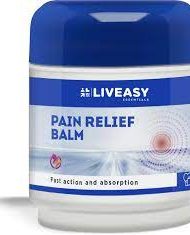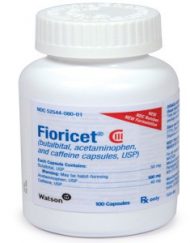Pain Relievers, Anti-Inflammatories, Antivirals, and Antihistamines: Managing Discomfort and Enhancing Well-being

In today’s fast-paced world, it’s not uncommon for individuals to face various health challenges, including pain, inflammation, viral infections, and allergies. Fortunately, there are several types of medications available to help manage these discomforts and enhance overall well-being. In this article, we will delve into the world of pain relievers, pain relievers anti-inflammatories, antivirals and antihistamines all manage anti-inflammatories, antivirals, and antihistamines, exploring their functions, uses, and benefits they offer.
Contents
- 1 Understanding Pain Relievers
- 2 The Role of Anti-Inflammatories
- 3 Antivirals: Fighting Back Against Viral Infections
- 4 Antihistamines: Taming Allergies
- 5 Choosing the Right Medication
- 6 Natural Alternatives
- 7 Tips for Safe Medication Use
- 8 The Importance of Consulting a Healthcare Professional
- 9 Conclusion
- 10 ADD/ADHD (2)
- 11 Anabolic Steroids (11)
- 12 ANTI ANXIETY (1)
- 13 Anti-Estrogens (1)
- 14 Antibiotics (1)
- 15 Birth Control (1)
- 16 buy Online (5)
- 17 COUGH SYRUP (2)
- 18 DEPRESSANTS AND ANXIETY (14)
- 19 Hallucinogens (5)
- 20 INJECTABLE STEROIDS (1)
- 21 MARIJUANA AND HASHISH (1)
- 22 nervous-stimulants (1)
- 23 OPIOIDS (15)
- 24 Pain Reliever (6)
- 25 Sleep & Insomnia (1)
- 26 STIMULANTS (10)
- 27 WEIGHT LOSS (1)
- 28 FAQs
Must Read: The World’s Leading SilkRoad Black Pharmacy: Empowering Access to Medications
In our journey through the realm of pain relievers, anti-inflammatories, antivirals, pain relievers anti inflammatories antivirals and antihistamines all manage and antihistamines, we will uncover the secrets behind these medications and learn how they play vital roles in managing discomfort and promoting a healthier life. Whether you’re dealing with a nagging headache, a persistent inflammatory condition, a viral infection, or bothersome allergies, there’s a solution waiting for you.
Understanding Pain Relievers
Types of Pain Relievers
Pain relievers, also known as analgesics, come in various forms, such as over-the-counter (OTC) and prescription medications. OTC options like acetaminophen and ibuprofen offer relief from mild to moderate pain, while prescription opioids are reserved for severe pain management. It’s essential to understand the differences and use them responsibly.
How Pain Relievers Work
Pain relievers work by targeting the body’s pain receptors, interrupting the signals that transmit pain sensations to the brain. This interruption results in a reduction of pain perception, offering much-needed relief. However, it’s crucial to follow dosing instructions carefully to avoid adverse effects.
The Role of Anti-Inflammatories
Inflammation: A Silent Culprit
Inflammation is the body’s natural response to injury or infection, but when it becomes chronic, it can lead to various health problems. Anti-inflammatories, including non-steroidal anti-inflammatory drugs (NSAIDs), help combat inflammation and alleviate associated pain and discomfort.
Common Anti-Inflammatory Medications
NSAIDs like aspirin, naproxen, and diclofenac are commonly used to manage inflammation. They work by inhibiting the production of inflammatory chemicals, providing relief from conditions like arthritis, tendonitis, and more.
Viruses and Their Impact
Viral infections can range from the common cold to more severe diseases like influenza and COVID-19. Antiviral medications are designed to target specific viruses and inhibit their ability to replicate, helping the body mount an effective defense.
Medications like oseltamivir and acyclovir are used to treat viral infections. They work by disrupting the virus’s life cycle, reducing the severity and duration of illness.
Antihistamines: Taming Allergies
Allergies Unveiled
Allergic reactions occur when the immune system overreacts to harmless substances like pollen, dust, or pet dander. Antihistamines block histamine receptors, reducing allergy symptoms such as sneezing, itching, and nasal congestion.
How Antihistamines Bring Relief
Over-the-counter antihistamines like cetirizine and loratadine are widely used to alleviate allergy symptoms. They are available in various forms, including pills, liquids, and nasal sprays, providing options for different preferences.
Choosing the Right Medication
Factors to Consider
Selecting the appropriate medication depends on factors such as the type and severity of your symptoms, your overall health, and any existing medical conditions or medications you’re taking. Consulting a healthcare professional can help you make informed choices.
Combining Medications Safely
In some cases, combining different types of medications may be necessary to address multiple symptoms. However, it’s crucial to do this under medical supervision to avoid potential interactions and side effects.
Natural Alternatives
Holistic Approaches to Pain and Inflammation
For those seeking natural alternatives, lifestyle changes like maintaining a healthy diet, regular exercise, and stress management can help reduce pain and inflammation.
Boosting Immunity Naturally
In addition to medication, a strong immune system is essential for overall well-being. Adequate sleep, a balanced diet, and immune-boosting supplements can contribute to a healthier immune response.
Tips for Safe Medication Use
Dos and Don’ts
To ensure safe and effective medication use, always follow the recommended dosage instructions, and never exceed the prescribed or OTC limits. Keep medications out of reach of children and store them properly.
Potential Side Effects
Every medication comes with potential side effects. It’s essential to be aware of these and report any adverse reactions to your healthcare provider promptly.
The Importance of Consulting a Healthcare Professional
While OTC medications are readily available, consulting a healthcare professional is crucial, especially when dealing with chronic conditions or severe symptoms. They can provide personalized advice, prescribe appropriate medications, and monitor your progress.
Conclusion
In a world filled with discomforts and health challenges, pain relievers, anti-inflammatories, antivirals, and antihistamines stand as valuable allies. They help us manage pain, reduce inflammation, fight viral infections, and find relief from bothersome allergies. However, their safe and effective use requires informed decision-making and responsible consumption. Remember to consult with a healthcare professional for guidance tailored to your specific needs.
Look Our Categories:
-
ADD/ADHD (2)
-
Anabolic Steroids (11)
-
ANTI ANXIETY (1)
-
Anti-Estrogens (1)
-
Antibiotics (1)
-
Birth Control (1)
-
buy Online (5)
-
COUGH SYRUP (2)
-
DEPRESSANTS AND ANXIETY (14)
-
Hallucinogens (5)
-
INJECTABLE STEROIDS (1)
-
MARIJUANA AND HASHISH (1)
-
nervous-stimulants (1)
-
OPIOIDS (15)
-
Pain Reliever (6)
-
Sleep & Insomnia (1)
-
STIMULANTS (10)
-
WEIGHT LOSS (1)
Must Read: Buy Magic Mushrooms Psilocybin Online: Navigating the Landscape of Psychedelic Experiences
FAQs
- Are there any natural alternatives to pain relievers and anti-inflammatories?Yes, lifestyle changes like a healthy diet, regular exercise, and stress management can help reduce the need for medication in some cases.
- What should I do if I experience side effects from my medication?Contact your healthcare provider immediately to discuss the side effects and potential adjustments to your treatment plan.
- Can I combine different types of pain relievers and anti-inflammatories?Combining medications should only be done under the























Recent Comments